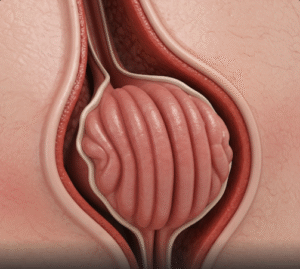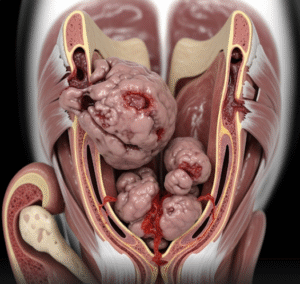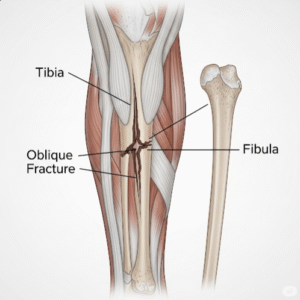Overview
Addison’s disease, also known as primary adrenal insufficiency, is a rare but serious disorder where the adrenal glands do not produce enough of certain essential hormones, mainly cortisol and sometimes aldosterone. These hormones are critical for regulating metabolism, blood pressure, immune function, and the body’s response to stress. Without proper treatment, Addison’s disease can be life-threatening, but with lifelong hormone replacement, individuals can lead normal, healthy lives.
What is Addison’s Disease?
Addison’s disease occurs when the adrenal cortex (the outer layer of the adrenal glands, located on top of the kidneys) is damaged and fails to produce sufficient cortisol and often aldosterone. Cortisol helps the body respond to stress, maintain blood sugar levels, and regulate inflammation. Aldosterone helps maintain blood pressure and balance salt and water.
The condition develops gradually and often remains unnoticed until symptoms worsen or a stress event (like illness or injury) triggers an adrenal crisis—a medical emergency.
Symptoms
Symptoms often develop slowly and can be mistaken for other conditions, making diagnosis difficult. Common signs include:
- Chronic fatigue
- Weight loss and decreased appetite
- Low blood pressure (especially when standing)
- Darkening (hyperpigmentation) of the skin
- Salt craving
- Nausea, vomiting, or diarrhea
- Muscle or joint pain
- Irritability or depression
- Low blood sugar (hypoglycemia)
- Abdominal pain
Adrenal Crisis Symptoms (Medical Emergency):
- Sudden severe pain in the lower back, abdomen, or legs
- Severe vomiting and diarrhea
- Low blood pressure
- Loss of consciousness
- Confusion or delirium
Causes
The most common cause is autoimmune destruction of the adrenal cortex, where the immune system mistakenly attacks the body’s own tissues. Other causes include:
- Tuberculosis or other infections of the adrenal glands
- Adrenal gland cancer
- Bleeding into the adrenal glands (hemorrhage)
- Genetic conditions affecting hormone production
- Surgical removal of the adrenal glands
Risk Factors
Factors that may increase the risk of Addison’s disease include:
- Autoimmune disorders (e.g., type 1 diabetes, Hashimoto’s thyroiditis)
- A family history of Addison’s disease or autoimmune diseases
- Long-term use of corticosteroids that are suddenly stopped
- History of infections like tuberculosis or HIV/AIDS
- Genetic predisposition (e.g., congenital adrenal hyperplasia)
Complications
If untreated or poorly managed, Addison’s disease can lead to:
- Adrenal crisis – a potentially life-threatening situation
- Dehydration and severe low blood pressure
- Electrolyte imbalances (especially high potassium and low sodium)
- Shock and organ failure
- Increased susceptibility to infection and stress-related complications
- Long-term fatigue and mental health concerns
Prevention
There is no guaranteed way to prevent Addison’s disease, but the following can help:
- Early detection of autoimmune or infectious diseases
- Regular monitoring if you have a family history of endocrine disorders
- Educating patients to recognize symptoms early
- Wearing a medical alert bracelet to inform emergency responders
Treatment Options Korea
1. Hormone Replacement Therapy
- Lifelong corticosteroid replacement is the cornerstone of treatment
- Medications include:
- Hydrocortisone (preferred), prednisolone, or cortisone acetate
- Fludrocortisone to replace aldosterone if mineralocorticoid deficiency is present
- Prescribed and monitored by endocrinologists at general and university hospitals
2. Stress Dose Adjustment
- During illness, surgery, injury, or emotional stress, steroid dose must be temporarily increased
- Patients are educated on sick day rules
- Emergency steroid injection kits (e.g., hydrocortisone IM) may be provided for home use
3. Monitoring and Follow-Up
- Regular checkups to assess:
- Electrolyte balance (sodium, potassium)
- Blood pressure, energy levels, and growth (in children)
- Korean hospitals often use ACTH stimulation tests for diagnosis and follow-up
4. Emergency Care for Addisonian Crisis
- Requires immediate IV hydrocortisone, fluid resuscitation, and electrolyte correction
- Treated as a medical emergency in ERs and ICUs across Korea
- Hospitals are equipped with protocols for acute adrenal crisis
5. Patient Education and Identification
- Patients advised to wear medical alert bracelets or cards
- Counseling provided on:
- Medication adherence
- Recognizing symptoms of crisis
- When to seek emergency care
6. Genetic and Autoimmune Evaluation
- If autoimmune origin suspected, may test for autoimmune polyglandular syndromes (APS)
- Genetic testing and adrenal antibody screening available in tertiary care centers
- Screening for thyroid disease, type 1 diabetes, and vitiligo is also common













